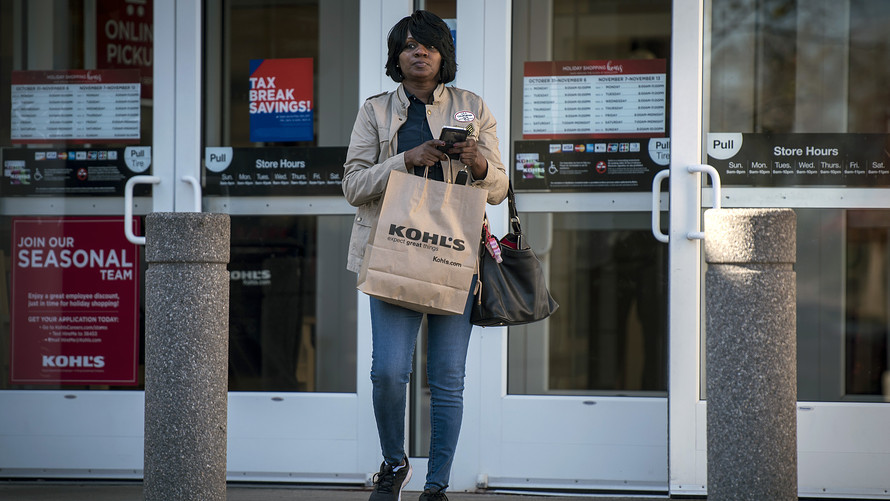
Some 88% of households with an annual income of $100,000 have had one of these cards
Next time the cashier at the checkout counter suggests signing up for a credit card to get extra savings, you may want to hold off.
Nearly half (47%) of Americans who have held a store credit card have regretted their choice to get one, according to a survey of 1,500 people conducted by LendingTree TREE, -2.08% subsidiary CompareCards. And wealthy Americans were most likely to get a store card — and regret it.
A staggering 88% of households with an annual income of $100,000 or more have had a store card at some point, compared with 75% of the general population. And 58% of these consumers regretted their decision.
Generation Xers, millennials and parents with children under the age of 18 were also more likely than the average American to feel remorse over getting a store card.
Consumers are easily burned by store cards’ interest rates
The average annual percentage rate (APR) for a store card is 24.97%, according to CompareCards. That’s higher than the average maximum APR across all credit cards, based on a recent report from CreditCards.com.
Retail cards that were co-branded — in other words, those that carry a Visa V, -2.22% Mastercard MA, -1.81% American Express AXP, -1.44% or Discover DFS, -1.25% logo — generally have a slightly lower APR on average at 23.20%. But cards issued directly by the retailers had a much higher average APR at 26.93%.
Only five retail cards carried minimum APRs below 13%: Bass Pro Shops Club Mastercard (9.99%), Dillards DDS, -0.69% Rewards American Express card (11.99%), Military Star credit card (12.24%), Nordstrom JWN, -0.50% Visa Signature (12.65%) and REI Co-op Mastercard (12.99%).
Meanwhile, four store credit cards — from Brandsource, Big Lots BIG, -7.73% Staples and Zales SIG, -2.66% — had minimum APRs at or above 29.99%.
Many retailers charge higher interest rates for their store cards because they do very minimal or no underwriting to determine whether a consumer is creditworthy. That means more people can get the cards, but those who carry a balance can easily be burned. Stores try to sweeten store card offers with deep discounts on purchases made with the cards.
“When it comes to store cards, the choice is simple: If you carry a balance month to month, you shouldn’t get one,” CompareCards chief industry analyst Matt Schulz said in the report. “Paying 25% on a balance to save 20% on a purchase doesn’t make any sense. As good as that offer might sound, if you can’t pay, stay away.”
But these high interest rates are just the tip of the iceberg when it comes to how store cards can negatively affect consumers. Some retailers offered deferred-interest cards that appear to be zero-interest cards. In reality, consumers are typically charged interest retroactively if they carry a balance at the end of the introductory offer period.
Many store cards are also closed-loop — meaning they can only be used at the retailer that offers them, making them less useful if a consumer doesn’t shop at the store often.
Why a store card can be worth it for some consumers
Many retail cards come with compelling offers. By signing up for the Kohl’s Charge card KSS, +0.86% consumers get 30% off their first purchase, plus 15% off another purchase when the card arrives in the mail. And Amazon AMZN, +0.30% offers a $70 Amazon gift card to shoppers when they’re approved for the Amazon Prime Rewards Visa Signature card.
The savings garnered through those offers can make a big difference, especially during the holiday shopping season, Schulz argued.
The key is not to bow to pressure. Rather than signing up for cards on the spot, consumers should ask for more information to take home.
“If the card offer still sounds appealing after you learn more about it, apply for the card the next time you go to that store,” Schulz said. “Chances are the offer will still be good on your next trip, and you’ll be able to make a much more informed decision.”


